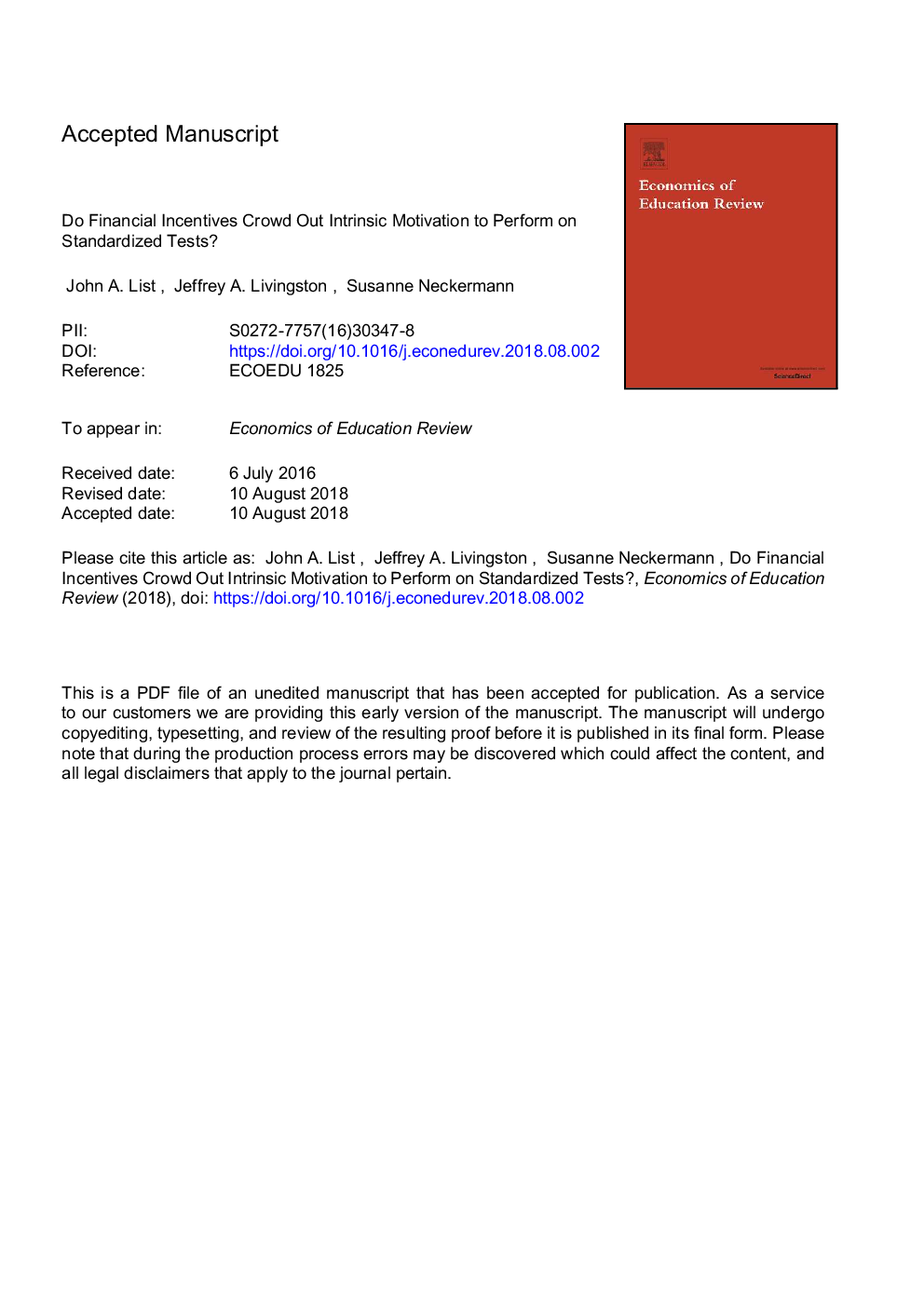| Article ID | Journal | Published Year | Pages | File Type |
|---|---|---|---|---|
| 9951963 | Economics of Education Review | 2018 | 43 Pages |
Abstract
Financial incentives linked to academic performance have been proposed as a potentially cost-effective way to support improvement. However, a large literature across disciplines finds that extrinsic incentives, once removed, may crowd out intrinsic motivation on subsequent, similar tasks. We conduct a field experiment where students, parents, and tutors are offered incentives designed to encourage student preparation for a high-stakes state standardized test. The incentives reward performance on a separate low-stakes preparatory assessment designed to measure the same skills as the high-stakes test. Performance on the high-stakes test itself, however, is not incentivized. We find substantial treatment effects on the incented tests but no effect on the non-incented test. We also find suggestive evidence that the incentives crowd out intrinsic motivation to perform well on the non- incented test, but this effect is only temporary. One year later, treated students perform better than those in control on the same non-incented test.
Related Topics
Social Sciences and Humanities
Economics, Econometrics and Finance
Economics and Econometrics
Authors
John A. List, Jeffrey A. Livingston, Susanne Neckermann,
